Are you a new person in the new year? You’re probably sick of hearing it at this point! We’re halfway into 2021, and after 2020 flipped most of our lives upside down, weight loss control appears to be a concern for many.
Mealtimes were thrown out the window in many households as WFH and online school became the norm, and snacking became more common.
It’s no surprise that weight loss management is a popular search term right now. A weight loss diet plan is not something you can create on your own; the foundation of weight loss management must be a controllable weight loss plan, not a random assortment of self-prescribed weight loss diet meals.
What Is Weight Loss Management?
Weight loss management is a collection of tools, procedures, and underlying physiological processes that enable a person to achieve and maintain a specific weight. It’s a way of life that must be maintained with adequate sleep, physical activity, and nutritious food.
It’s tempting to be misled by promises of quick and obvious weight loss, but in most cases, a gradual and steady approach to weight loss management is the best option.
Low-calorie diets for quick weight loss can be effective if followed under medical supervision, but they should never be self-prescribed.
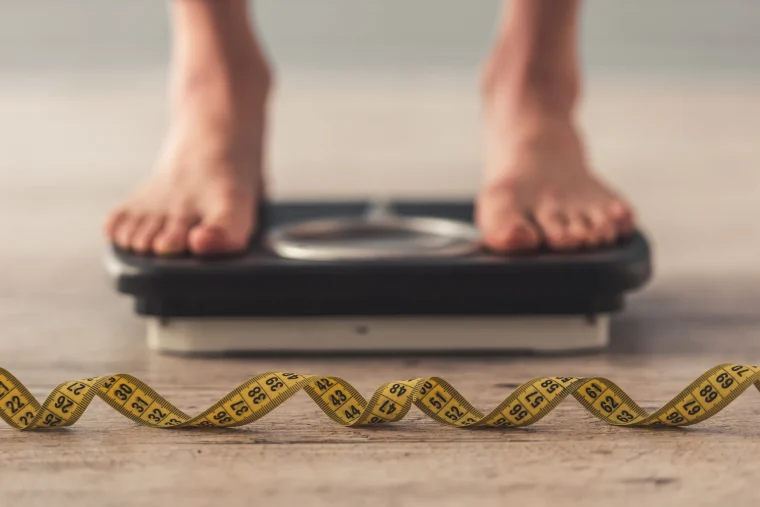
A manageable weight loss plan is essentially a long-term commitment to healthy lifestyle adjustments in food, activity, and behavior.
But what is the greatest diet for weight loss? Because we all have varied requirements and tastes, there is no obvious solution to this question.
However, there are other excellent solutions available, and we have you covered! Here is a list of the top 10 weight loss management diets for this year.
1. Mediterranean Diet
The Mediterranean diet is well-known, extensively followed, and a global favorite. For years, the Mediterranean diet has continuously ranked among the top ten weight loss diets.
This diet is heart-healthy, combining healthy fats, whole grains, leafy greens, fish, and even wine, and is based on the eating patterns of some of the world’s longest-living populations concentrated around Blue Zones in areas like Greece and Sardinia.

Dieters are urged to consume plenty of beans, fruit, leafy greens, whole grains, and even a glass of red wine on a regular basis.
They should consume healthy fats such as avocados, olive oil, almonds, and seafood at least twice a week.
Cheese should be consumed in moderation, and red meat should be consumed just once or twice a week to aid with weight loss management.
Alternatives in India include peanut oil, mustard oil, cow ghee, chakki ka fresh data, and locally grown, seasonal veggies.
The diet is popular because it is simple to follow and delicious!
2. DASH Diet
This diet has NOTHING to do with the Kardashians; instead, it is an abbreviation for Dietary Approaches to Stop Hypertension!
This is a low-fat, low-sodium diet designed to decrease blood pressure, but it can also help with weight loss management!
A wide variety of foods can be consumed as long as they are consumed properly.
1) Fresh fruits such as apples, oranges, and bananas; mix in apricots, dates, and berries for variety.
2) Tomatoes, carrots, broccoli, and spinach are examples of vegetables.
3) Dairy products with low fat, such as milk, buttermilk, yogurt, cheese, and sour cream.
4) Grains in their entirety.
5) Nuts, seeds, and legumes are all good sources of protein.
6) Consume lean meats, poultry, and fish.
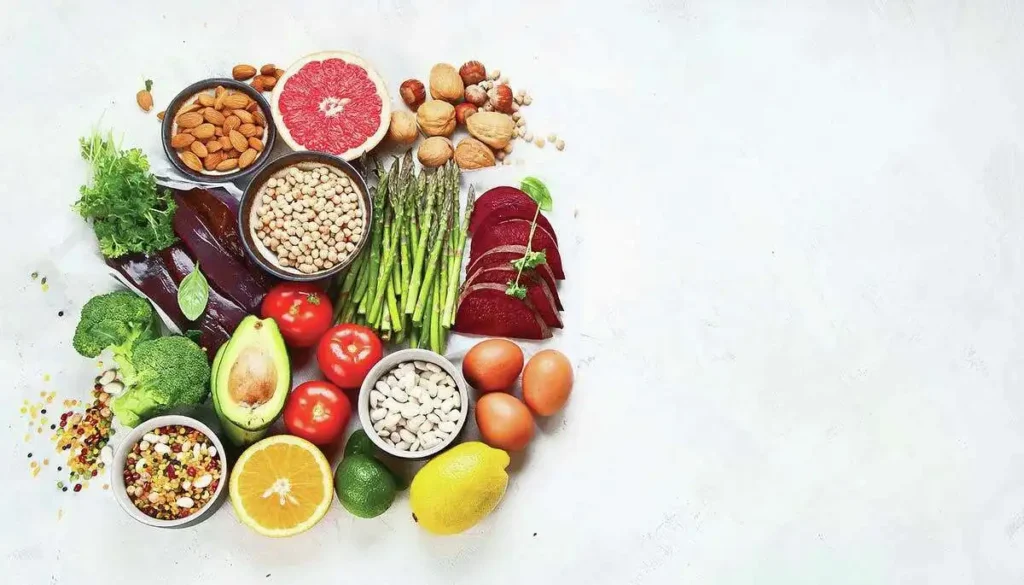
Dieters following the DASH eating plan are encouraged to consume whole grains, 2-3 portions of fruit, and 5-6 servings of vegetables.
2-3 servings of dairy are also permitted to enhance good gut health and increase calcium levels while aiding weight loss control.
You can have unpolished, parboiled, hand-pounded rice, daliya, steel-cut oats, bananas, tomatoes, sweet potato, yogurt, and various lentils or dal.
3. MIND Diet
Researchers at Rush University in Chicago created this diet in 2015-16 as a strategy to combat Alzheimer’s, dementia, and age-related loss of brain function.
The MIND diet is a hybrid of the heart-healthy Mediterranean diet and the blood-pressure-lowering DASH diet. The goal was to develop a plan to advise patients on what to eat and avoid in order to slow age-related brain deterioration.
The diet consists of 15 items, 10 of which enhance the brain (and should be consumed) and 5 of which may harm brain functioning and should be avoided.
Leafy greens, vegetables, nuts, berries, olive oil, whole grains, legumes, fish, chicken, and wine are among the ten things you may consume.
Every day, dieters should consume three servings of whole grains, a leafy green salad, and a vegetable. Nuts and berries should be eaten every other day, while whole poultry and fish should be eaten at least once a week.

While the MIND diet was not designed with weight loss in mind, eating meals from it can surely aid in weight management. It urges you to consume plenty of greens at least once a day, as well as seeds, berries, and nuts.
As a result, you get the benefits of fiber, healthy fats, Vitamin C, and brain-boosting minerals!
All of the elements listed above are beneficial to your general health and can be used as weight-reduction diet meals.
Amla, strawberries, bathua, methi, mustard greens, palak, wheatgrass powder/juice, pomegranate, flax seeds, sabja seeds, and pumpkin seeds are some of the desi foods you may include on your plate as part of the MIND diet. Cook it in handmade cow ghee as much as possible.
Sugar, trans fats, fried meals, red meat, and cheese are the five things that the MIND diet requires you to avoid. It would help if you also avoided caffeine and alcohol. As a result, the MIND diet is an excellent eating plan for weight reduction management.
4. WW Diet
The Weight Watchers program, sometimes known as the WW diet, is more of a system than a diet that forbids or restricts specific foods. The WW SmartPoints system is used in the program, which allocates point values to meals and beverages depending on their nutritional worth.
Each day, the dieter is assigned a particular number of points. And you can eat whatever you want within that point range.
You can also eat an unlimited quantity of 0-point foods (most fruits and vegetables, as well as lean proteins like fish, tofu, beans, eggs, and chicken breast), making it a very flexible system to follow!
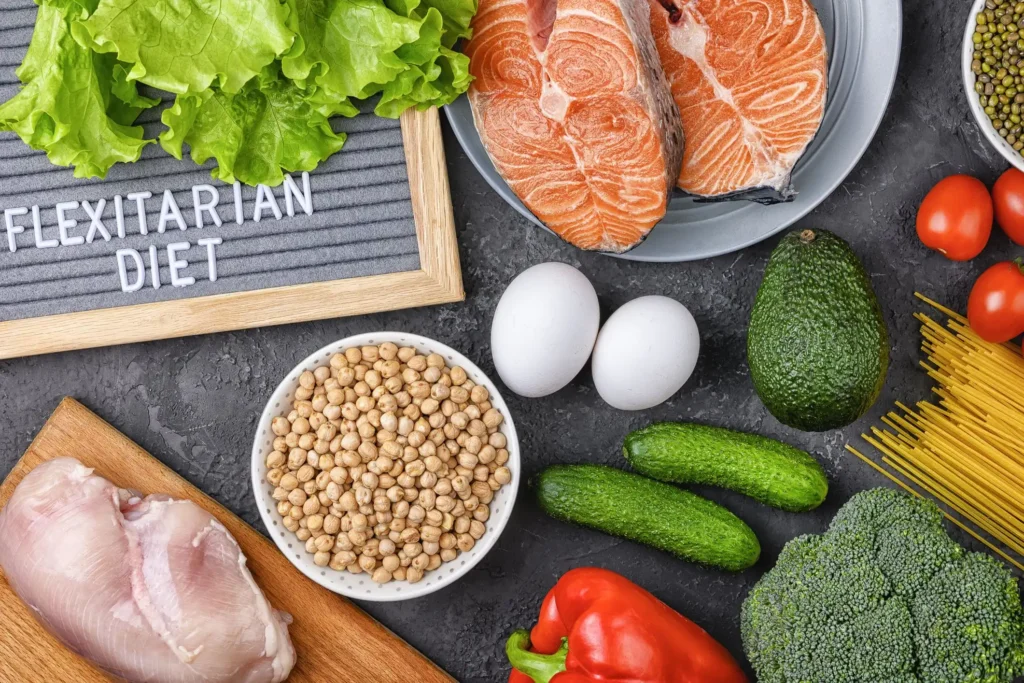
It works well for weight loss management since there are so many 0-calorie, fiber-rich, and nutrient-dense foods to choose from.
5. Intermittent Fasting/5:2
This has two effects. Some people limit their meals for the day to 8 hours. Others adhere to the notion of eating whatever they want five days a week and “fasting” or consuming a limited amount of roughly 500 calories the other two days of the week.

Sticking to a regimen for two days a week, or a set number of hours per day, is more manageable, and dieters are more likely to stick with the program and effectively lose weight, making this a feasible alternative for weight loss management.
6. Ornish Diet
It aids in weight loss management since it is a diet high in vitamins, fiber, and nourishing vegetables that keep you satiated for longer periods, preventing you from reaching for snacks in between main meals.
Aside from being an effective weight loss diet, studies have shown that the Ornish diet can reverse heart disease and improve other chronic health conditions.
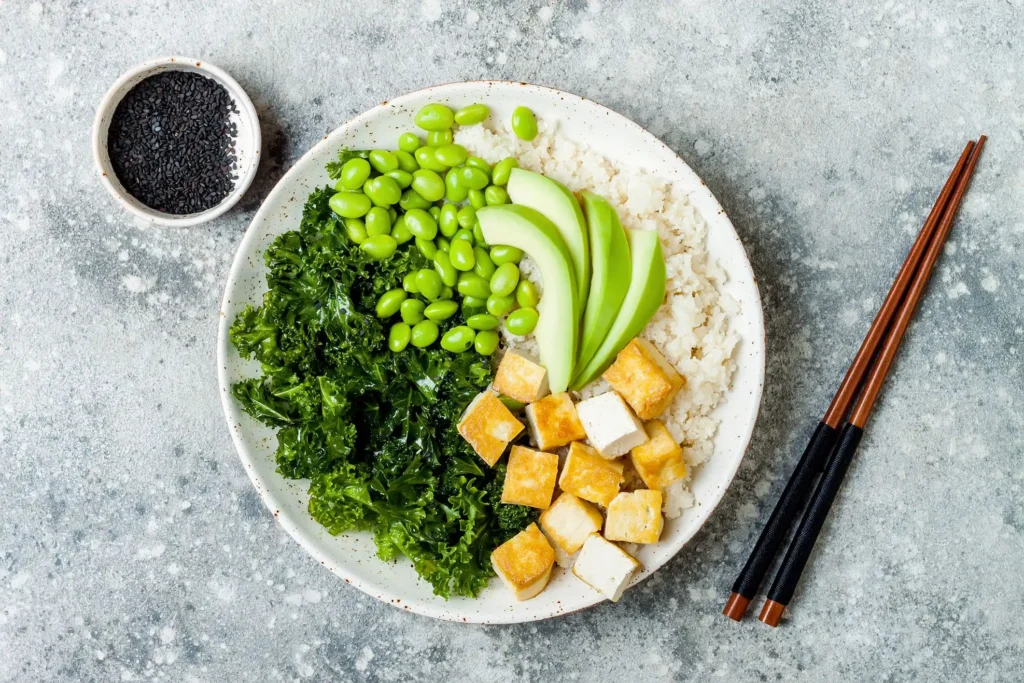
The documentary Forks Over Knives popularized the Ornish diet. It is not a vegan diet (vegan diets exclude all animal products, including dairy and eggs) but rather an ovo-lacto diet based on whole grains, vegetables, fruits, and legumes.
It permits the ingestion of dairy and eggs; however, only egg whites and nonfat dairy products are permitted.
7. Nordic Diet
This combination of whole grains, berries, fruits, and veggies provides a fiber-rich diet that helps keep you feeling fuller for longer, assisting you with weight loss control.

Similar to the Mediterranean diet in that it draws foods from a certain region’s eating patterns, the Nordic diet draws foods from Denmark, Sweden, and Norway’s eating habits.
It emphasizes many of the same food groups as the Mediterranean diet, including seasonal fruits and vegetables, healthy grains, and salt-and-freshwater lean meats such as fish. Processed meals, white sugar, and lean poultry and beef are prohibited, while canola oil is recommended instead of olive oil.
The Nordic diet emphasizes robust, high-carbohydrate foods like crackers and crispbreads made entirely of whole-grain barley, oats, and rye.
Indians can adapt this by utilizing some of these flours to make roti and desi flatbreads. Berries are also recommended.
8. Fertility Diet
Originally devised by Harvard Medical School doctors for women trying to conceive, this diet is excellent not just for improving fertility but also for weight loss control.
In an attempt to alleviate hormonal imbalances that impair conception, the diet concentrates mostly on vegetarian meals and restricts dairy, caffeine, and alcohol use.
However, eating mostly plant-based foods helps with weight loss control by default.
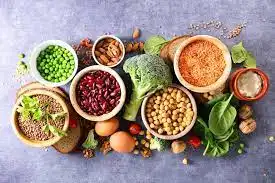
The diet encourages participants to consume more plant-based fiber and protein in the form of lentils, nuts, and seeds.
Because the protein is derived from plants, it aids in the reduction of inflammation. Chickpeas, beans, peas, soybeans, tofu, and almonds are also good options.
9. Volumetrics Diet
Dr. Barbara Rolls, a nutrition professor at Penn State University, developed this diet. The plan is to eat meals that are high in nutrition but low in calories.
When you combine what you eat in a day with a serving of fresh, seasonal vegetables, you’ll notice that the energy density decreases while the nutrient density remains constant.

So you receive all of your essential vitamins and minerals, you get a lot of fiber, you mend your gut, and you feel fuller for longer, which helps with weight loss management by eliminating those pesky in-between cravings.
This diet works because it allows you to become in shape in a much more sustainable way without feeling deprived.
10. Flexitarian Diet
Flexitarianism is a lifeline for those who struggle to stick to a single cuisine or dietary group.
Many people find that 100% lean-meat or 100% vegan/plant-based diets are too restrictive, which is where the flexitarian diet comes in – and it is an effective strategy for weight reduction control.

It is a versatile vegetarian diet that allows for a healthy balance of plant-based meals, responsibly produced meats, and high-quality fats, enabling satisfaction and optimal nutrition without feeling bored or restricted.
What Is The Best Diet For Weight Loss - 2023?

I can supply some general ideas for a healthy and effective diet for weight loss in 2023 based on my most recent knowledge update in September 2021. Remember that dietary guidelines might change, and it’s always a good idea to seek tailored advice from a healthcare practitioner or registered dietitian. Here are some basic guidelines for a healthy weight-loss diet:
1. Macronutrients in Balance: Concentrate on eating a balanced diet of carbohydrates, proteins, and fats. Extreme diets that exclude entire food groups should be avoided.
2. Calorie Deficiency: Consuming fewer calories than you expend is the ultimate goal of weight loss. Calculate your daily calorie requirements and aim for a moderate calorie deficit (500-750 calories less than maintenance) to achieve progressive and lasting weight loss.
3. Portion Management: To avoid overeating, keep portion proportions in mind. Using smaller dishes, monitoring your food, and listening to your hunger cues can all help.
4. Whole Foods Market: Fruits, vegetables, lean proteins, whole grains, nuts, and seeds should be prioritized above processed diets. These foods are usually lower in calories and higher in nutrients.
5. Protein Consumption: Include enough protein in your diet. Protein promotes satiety, maintains lean muscle mass, and aids in weight loss. Lean meats, chicken, fish, tofu, beans, and dairy are all good sources.
6. Foods High in Fiber: Fiber keeps you feeling full and content. Include fiber-rich foods such as fruits, vegetables, whole grains, and legumes.
7. Good Fats: Avocados, almonds, seeds, and olive oil are all good sources of healthful fats. These fats give critical nutrients while also making you feel full.
8th. Hydration: Stay hydrated throughout the day. Thirst might be confused with hunger at times.
9. Cut back on added sugars and processed foods: Reduce your consumption of sugary beverages, candy, and highly processed foods. These are frequently high in calories and low in nutrition.
10. Mindfulness in Eating: Take note of what you eat and practice mindful eating. To assist in reducing portion sizes, avoid distractions when eating, taste your food, and eat slowly.
11. Physical Activity on a Regular Basis: Include regular exercise in your daily regimen. A combination of aerobic and strength training can help you burn calories while maintaining muscle mass.
12. Patience and consistency: Weight loss is a slow and steady process. Maintain your healthy diet and exercise routines while remaining gentle with yourself.
13. Seek Professional Help: If you have specific dietary needs or medical issues or need clarification about the best approach for your unique circumstances, seek tailored advice from a certified dietitian or healthcare expert.
Remember that there is no such thing as a one-size-fits-all diet for losing weight, and what works for one person may not work for another. Finding a sustainable and pleasurable eating plan that corresponds with your objectives and interests while supporting overall health is critical. Additionally, as the study of nutrition continues to advance, keep up with the most recent nutritional guidelines.
FAQs
1. What is the best diet for losing weight in 2023?
The “best” diet varies from person to person based on personal preferences and demands. However, we have produced a list of the top 10 diets for weight loss in 2023 based on popular trends, scientific research, and success stories in this post.
2. Are these diets appropriate for everyone?
Actually, sometimes. Each of the diets on our list may work differently for different people. Before beginning any new diet, contact a healthcare practitioner or qualified dietitian, especially if you have underlying health concerns or specific dietary limitations.
3. Do these diets necessitate severe limitations or fasting?
Some of the diets on the list, but not all, may include dietary restrictions or intermittent fasting. We’ve included a number of diets to accommodate diverse tastes and lifestyles, some of which are more adaptable than others.
**4. Can I lose weight without exercising on these diets?
While food is important in weight loss, regular physical activity is generally recommended for the best outcomes and overall health. However, certain diets may stress dietary modifications more than others, while others promote a balanced approach that includes exercise.
5. Do these diets necessitate the use of expensive or difficult-to-find ingredients?
The majority of the diets on our list prioritize whole, unadulterated foods. While some specialty ingredients may be advised for specific diets, they are relatively inexpensive and easy to obtain. Many of these diets are inexpensive to follow and use widely available foods.
6. Will these diets have any adverse effects?
The possibility of adverse effects varies based on the food and the individual. When making large dietary changes, some people may experience side effects such as exhaustion, intestinal difficulties, or mood swings. It is critical to monitor your body’s response and make adjustments as needed.
7. Can I stick to these diets indefinitely, or are they only for quick weight loss?
Some of the diets on our list are intended for quick weight loss, while others can be followed over time as a healthy lifestyle choice. It is critical to evaluate your long-term goals and select a diet that is compatible with your preferences and health requirements.
8. Can vegetarians or vegans follow these diets?
Yes, we have diets that appeal to a variety of dietary requirements, including vegetarian and vegan options. Our collection contains diets that are compatible with your ethical and dietary preferences.
9. How do I pick the best diet for me from this list?
Your personal objectives, interests, and health concerns determine the best diet for you. To make an informed decision based on your specific circumstances, we recommend talking with a healthcare practitioner or certified dietitian.
10. Are these diets suitable for teenagers, pregnant women, or the elderly?
Certain diets may not be appropriate for certain demographics, such as youths, pregnant women, or older adults. It is critical to get the advice of a healthcare practitioner to identify which diet, if any, is appropriate for your age and stage of life.
Keep in mind that losing weight is a personal experience, and what works for one person may not work for another. When considering food changes, it is critical to prioritize your health and well-being, and speaking with a healthcare practitioner is always a prudent decision before embarking on a new dietary plan.














